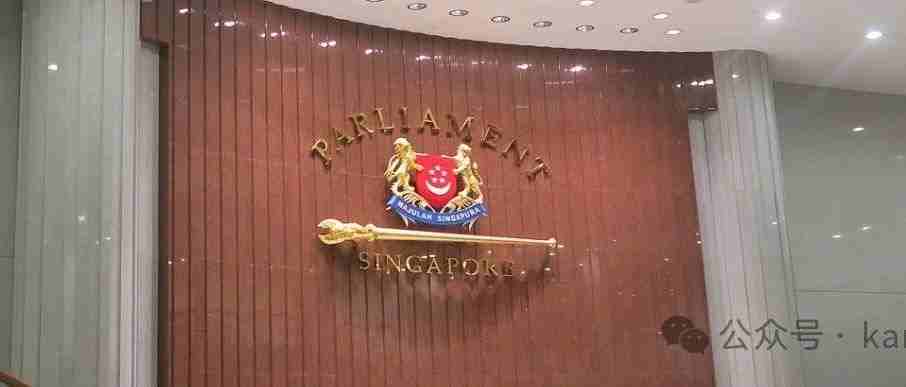多国政府网络受到攻击,新加坡部长回答如何应对

▲ 新加坡眼,点击卡片关注,加星标,以防失联
近期,多国政府网络被曝遭黑客入侵,并攻击个人电脑。
2024年3月6日,新加坡通讯及新闻部高级政务部长普杰立在国会上回答了杨厝港单选区议员叶汉荣和裕廊集选区议员陈有明针对此事的质询。
点击下面视频观看详情:
以下内容为新加坡眼根据国会英文资料翻译整理:
叶汉荣议员质询通讯及普杰立部长:
问
- 在过去三年,通讯及新闻部是否曾发现针对我国政府电脑系统的类似攻击?
- 通讯及新闻部是如何应对网络攻击行为?
新加坡政府网络未受到此次攻击的影响。我们与网络安全局 (CSA) 和 GovTech 等部门合作,监控重要的电脑系统,并采取行动和措施应对网络攻击。鉴于其敏感性,我们无法公开讨论这些行动和应对措施。
答
问
这些意外事件并不多见,那么该如何训练并提高我们的公务员面对网络安全威胁的意识?
感谢叶先生的提问。
当谈及我们关键的信息基础设施的网络安全保障措施时,我们必须考虑到各种层面的问题,这不仅仅是训练我们的公务员,当然这是一个重要组成部分。
在确保政府信息和通信技术系统安全方面,我们有一个多层次的纵深防御体系,以预防性、主动性、侦查性和反应性等措施以抵御网络威胁。
屏蔽恶意内容:我们会保障在浏览网页时的安全,不让政府工作电脑接触到网上的恶意内容。
主动安全测试:定期对政府电脑系统进行安全测试,发现并修复任何可能存在的潜在漏洞。
实时监测:我们的线上系统由安全运营中心进行24小时全天候监控,侦测是否有网络攻击。
快速反应:如果发现可疑或恶意网络攻击行为,我们的紧急反应团队随时准备迅速遏制任何攻击,对事件做调查并进行必要的补救措施,以及跟进系统恢复。
开展网络安全培训:依靠一个中央系统来保卫所有地方,这是不够的。我们还定期开展网络安全意识培训,为我们的公职人员提高他们的的网络安全意识。正是这种分层防御和纵深布局,保护我们的系统免受网络威胁。
答
(左图:新加坡裕廊集选区议员陈有明,右图:新加坡通讯及新闻部高级政务部长普杰立)
陈有明议员质询普杰立部长:
问
第一个问题是部长能否向我们保证,政府会更广泛地关注网络攻击的潜在攻击面,即使这些域名不在gov.SG 内。这是因为电力和公用事业公司即使没有gov.SG域名,也可能因提供关键服务器从而成为麻烦制造者潜在的攻击目标。
第二个问题是,部长能否向我们保证,是否持续关注政府网络潜在的风险,尤其在一些关键的节点,因为这些节点一旦故障可能会带来巨大的风险,是否也持续关注这些风险集中的节点?
这两个问题的答案都是肯定的。我们在建立网络安全架构时,就已经设定了系统和系统之间的相互作用,这也是我们网络安全法制定时考虑的因素,并由此定义了关键信息基础设施和敏感信息基础设施,这些考虑因素在gov.SG域名以外的网站同样适用。
答
以下是此次国会质询英文全文:
STATE-SPONSORED CYBER ATTACKS ON SINGAPORE GOVERNMENT SYSTEMS
1 Mr Yip Hon Weng asked the Minister for Communications and Information given the recent security breaches of several foreign government computer systems (a) whether the Ministry has detected similar attacks on our Government computer systems over the past three years; and (b) how does the Ministry respond to cyber acts by state-sponsored actors.
The Senior Minister of State for Communications and Information (Dr Janil Puthucheary) (for the Minister for Communications and Information): Sir, there were recent reports that a Chinese cybersecurity firm, I-Soon, had allegedly compromised nearly 20 foreign governments. Singapore was not listed as an affected country.
The Cyber Security Agency (CSA) and GovTech work with our security agencies to monitor threats and respond to any cyberattack on our critical computer systems. Given their sensitive nature, we are unable to publicly discuss such operations and responses.
Mr Speaker: Mr Yip.
Mr Yip Hon Weng (Yio Chu Kang): Thank you, Mr Speaker. I thank the Senior Minister of State for the reply. I have a very short supplementary question. In light of this incident, how are our civil servants trained to be more aware of such cyber attacks by state-sponsored actors?
Dr Janil Puthucheary: Sir, I thank Mr Yip for his question. When it comes to the safeguards for the cybersecurity of our Critical Information Infrastructure, there are various layers and various issues that we have to think about. It is not just about the training of our civil servants. That is certainly an important component of it, but we have a multi-layer defence in-depth approach in securing our Government's infocomm technology (ICT) systems. There are preventive, proactive, detective and reactive measures that we put in place to defend against cyber threats.
One example of a preventive measure would be the Secure Internet Surfing, blocking Government workstations from malicious content. An example of a proactive measure is putting Government digital services through security testing to discover and remediate any potential vulnerabilities that may be there. For the systems that are online, our Security Operation Centre monitors the devices and networks 24/7 to detect attacks. Should suspicious or malicious activities or payloads be detected, our Incident Response Teams are prepared to contain quickly any attack, investigate the incident, carry out the necessary remediation and follow-up actions for recovery.
Other than depending on a central system to defend everywhere – that is not going to be sufficient – we also conduct regular cybersecurity awareness training for our public officers, raising their cybersecurity posture in terms of their behaviour and how they interact with systems. It is this layered, defence-in-depth landscape that will protect our systems from cyber threats.
Mr Speaker: Dr Tan Wu Meng.
Dr Tan Wu Meng (Jurong): I thank the Senior Minister of State for the answer. I have got two supplementary questions. The first is, can the Senior Minister of State reassure us that the Government is looking at the broader potential attack surface for cyber attacks, including beyond the gov.sg domain? This is because power and utilities companies, even if not under gov.sg, may supply a critical server and thereby be a potential attack surface by troublemakers.
My second question is, can the Senior Minister of State assure us that there is ongoing attention to looking for potential convergence points of risk, your acupressure points or your shatter points, whereby those points of failure can have disproportionate risk? Is there ongoing attention to such convergences of risk as well?
Dr Janil Puthucheary: Sir, the answer to both questions is yes. That sense of looking at the systems, systems of systems and the interactions between the various components of the systems is indeed the very framework that our Cyber Security Agency takes and the Cybersecurity Act is applied to, and it is how we then derive the designation of Critical Information Infrastructure and Significant Information Infrastructure. These considerations are not only for the gov.sg domains.
CK丨编辑
CF丨编审
Goverment of Singapore丨来源
MCI丨图源
免责声明:
1.凡本公众号注明文章类型为“原创”的所有作品,版权属于看南洋和新加坡眼所有。其他媒体、网站或个人转载使用时必须注明:“文章来源:新加坡眼”。
2.凡本公众号注明文章类型为“转载”、“编译”的所有作品,均转载或编译自其他媒体,目的在于传递更多有价值资讯,并不代表本公众号赞同其观点和对其真实性负责。
相关阅读
2024财政预算案最新政策!关乎新加坡全岛半数人
视频直播
新加坡眼旗下视频号你关注了吗?
点击下面视频,查看更丰富的内容!
想第一时间了解新加坡的热点/突发新闻,可关注新加坡眼旗下“看南洋”微信公众号,同步下载新加坡眼APP,不失联。
关键词
网络攻击
公众号
新加坡眼
for the
I thank
最新评论
推荐文章
作者最新文章
你可能感兴趣的文章
Copyright Disclaimer: The copyright of contents (including texts, images, videos and audios) posted above belong to the User who shared or the third-party website which the User shared from. If you found your copyright have been infringed, please send a DMCA takedown notice to [email protected]. For more detail of the source, please click on the button "Read Original Post" below. For other communications, please send to [email protected].
版权声明:以上内容为用户推荐收藏至CareerEngine平台,其内容(含文字、图片、视频、音频等)及知识版权均属用户或用户转发自的第三方网站,如涉嫌侵权,请通知[email protected]进行信息删除。如需查看信息来源,请点击“查看原文”。如需洽谈其它事宜,请联系[email protected]。
版权声明:以上内容为用户推荐收藏至CareerEngine平台,其内容(含文字、图片、视频、音频等)及知识版权均属用户或用户转发自的第三方网站,如涉嫌侵权,请通知[email protected]进行信息删除。如需查看信息来源,请点击“查看原文”。如需洽谈其它事宜,请联系[email protected]。